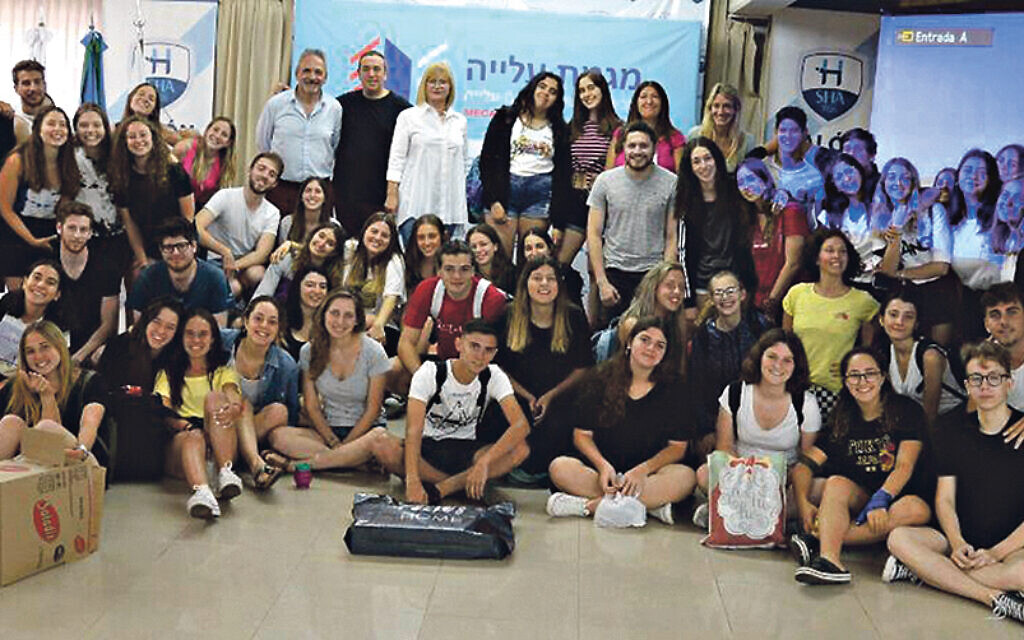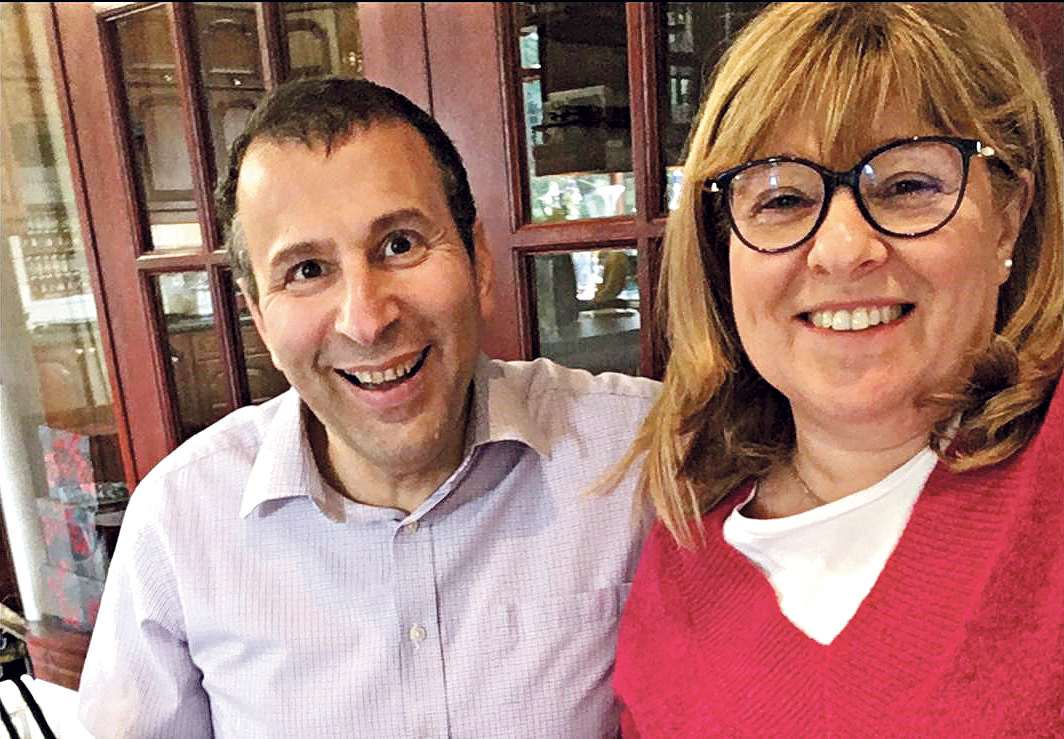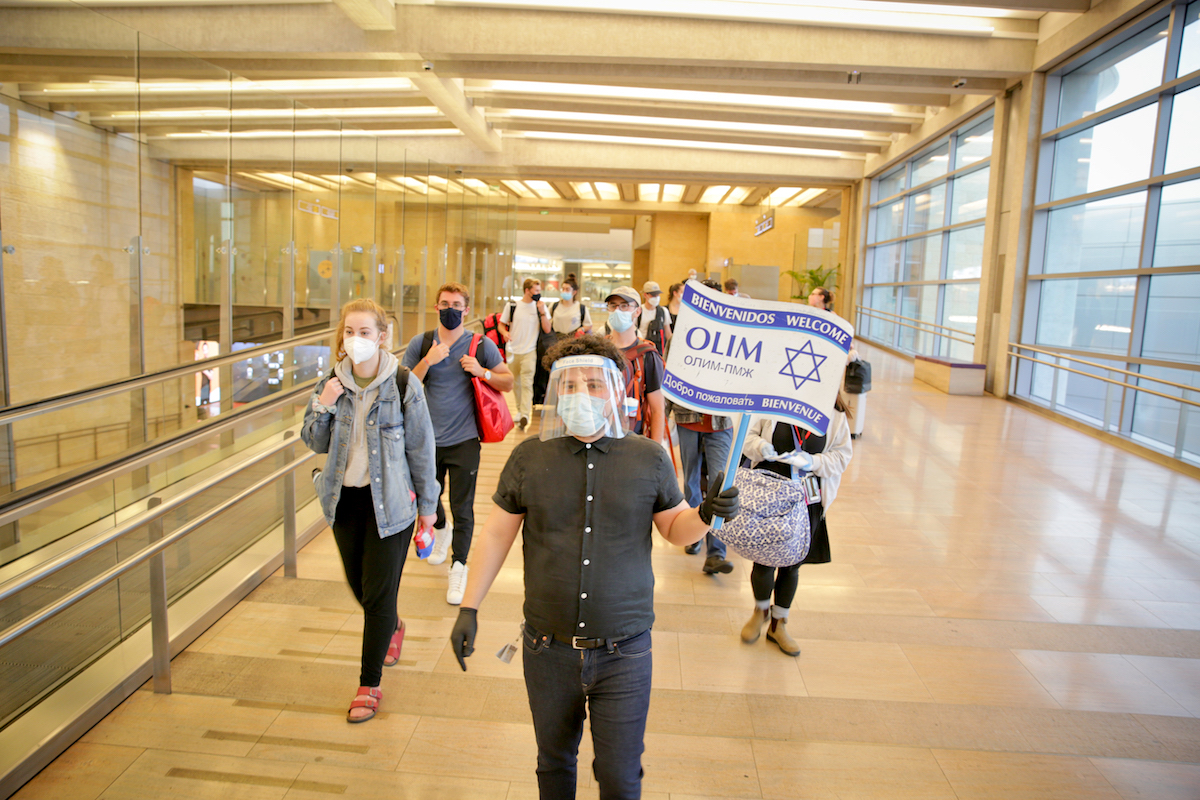Meet the British Jews making aliyah in Lockdown!
Despite global travel restrictions, immigration to Israel was barely affected last year. Francine Wolfisz speaks to three Brits who packed their bags for the Holy Land

Flights were cancelled, borders closed and restrictions placed on all but essential travel – yet that still did not stop 20,000 people from around the world making aliyah at the height of the Covid-19 pandemic.
Of those, more than 500 people came from the UK in 2020, with just a 15 per cent decrease on numbers from the year before, according to the latest figures from The Jewish Agency for Israel (JAFI) and the department for the promotion of aliyah at the World Zionist Organisation (WZO).
Interest in starting a new life in Israel has also soared. Globally, more than 160,000 people have enquired about immigration, while JAFI has opened 41,000 new aliyah application files. Over the next three to five years, experts say, as many as 250,000 people could be packing their bags to settle in the Holy Land.
Get The Jewish News Daily Edition by email and never miss our top stories Free Sign Up
It’s a trend acknowledged by the department for the promotion of aliyah, which helps budding olim, or immigrants, learn Hebrew, supporting them in finding employment and a place to live, as well as navigating them through the bureaucracy of immigration.

Marina Rosenberg-Koritny, WZO’s head of The Aliyah Promotion Department, explains: “We teach them the language and tell them about what is happening in
Israel. We adjust their expectations to the reality of life here.”
Rosenberg-Koritny is especially passionate about helping diaspora Jews as an olim herself, having moved to Israel from Kazakhstan in 1995.
Over the next 20 years, she progressed from schoolteacher to local council member, adviser to the minister of tourism, deputy head of Zionist movement World Yisrael Beytenu and now her current position with WZO.
Like many others who move to Israel, Rosenberg-Koritny was keen to learn Hebrew, something she credits with helping her to adapt faster and more successfully to her adopted country. Indeed, WZO runs ulpan classes all over the world, reaching more than 250,000 Jews each year.
To find out more about Hebrew ulpan classes in the UK, email Dimitri Mevzos at dimitrim@wzo.org.il or call 020 8371 5336.
So why are people lured to a new life in Israel? Three new olim tell us their story and explain why even a pandemic wasn’t going to halt their plans…
Lydia White, 58, is originally from Dublin and moved to Manchester nearly 40 years ago. She and her husband Brian arrived in Israel on 24 December and have already received both of their Covid-19 vaccinations.
“I’ve always wanted to come to live in Israel. I have a daughter who lives here and two daughters in London. We visited Israel every year on holiday and during the year. I was very happy living in Manchester, but it was always my dream to live in Israel.
We always said we wanted our daughters to be settled before we made aliyah, so when our last daughter got married, that’s when we began our plans. We were meant to go in the summer of 2020, but after everything went into lockdown, our plans were pushed back by four months.
Moving house is stressful and making aliyah is stressful. I’ve spoken to people who’ve made aliyah in the past and they said they hadn’t slept for weeks but, as soon as they got on the flight to Israel, they slept.

Just before we were due to leave, Boris Johnson announced new restrictions, so we couldn’t move out of our house and stay with my daughter in London before our flight, as we had planned.
We also had to say goodbye to our daughters and our granddaughter through their lounge windows. Then at the airport, although we had a visa, British Airways was unsure if non-Israelis would be allowed into Israel.
Fortunately, the Jewish Agency had given us an additional letter stating we would become Israeli citizens and that they would allow entry into Israel.
Once we arrived, we were concerned we would have to go to a quarantine hotel, but an exception was made for my husband on health grounds and we were granted
a permit to stay in our new home in Zikhron Ya’akov.
For the first 10 days, we were in quarantine and it’s taken me quite a few weeks to actually relax. I have been learning Ivrit through a department for the promotion of aliyah ulpan class in Manchester for about three years and know enough to get by.
Overall, I’m very happy to be here and everyone has been kind. In other circumstances, we would have met people and gone to restaurants, and the reality of course is that we haven’t, but people have phoned and asked how they can help.
The first few weeks were not what I would have expected in normal times, but it is the best it can be right now.”
Jessica Miron, 27, is a marketing product manager from London and made aliyah in early December. She has now settled in Tel Aviv.
“The first lockdown gave me time to put my life into perspective. Israel has always been one of those things that I wanted to try. I reached the conclusion that if I don’t do it now, I might not at all.
Personally, I didn’t find it a big logistical challenge. I was able to easily get appointments at the Ministry of Immigration and I’ve never been in and out of Ben Gurion airport so quickly with all my luggage.
When I arrived, I had about two weeks before we went into lockdown, so I was able to see friends and family, as well as secure an apartment.

Before I left the UK, I started learning Ivrit with the department for the promotion of aliyah over Zoom, and have joined a Zoom ulpan class in Israel.
I took a break from work for a few months before securing employment. I think the trick with aliyah is to not try to do too much too soon. It’s better to get everything else sorted and then focus on a job.
So far, my experience has exceeded expectations – I thought some of the bureaucracy would be a little tricky, whereas it was actually pretty simple.”
Benjamin Gee, 24, is from Birmingham. He moved to Israel on 12 January with a friend and is living at Ulpan Etzion in Jerusalem.
“I was due to go in July, but postponed until January. I briefly went to Israel in August as a madrich, but came back to the UK and was still uncertain whether I would be moving.
When I heard England was going into another lockdown and borders were shutting, I decided to just go for it. I think I must have been one of one of the last people from the UK to get into Israel at that time.

On the day of my flight, I felt very lucky to be going. Heathrow was completely empty, as was the flight, so I was upgraded to first class.
On arrival, we were taken to the Dan Panorama in Tel Aviv for quarantine. We were locked in a room, but it was pretty amazing.
We stayed for free, they gave us three meals a day and the army checked up to see how we were. The time went quite fast.
I don’t know many people here, but it’s easy to feel connected to people and I can call my parents on FaceTime.
It’s also been great being in the ulpan – we’ve become our own little community. There’s more than 20 British people and 150 from around the world.
There have been restrictions, which are slowly lifting. Because we are all in the same building, we’ve been able to socialise and see people, so it’s been a very unique experience.”

Thank you for helping to make Jewish News the leading source of news and opinion for the UK Jewish community. Today we're asking for your invaluable help to continue putting our community first in everything we do.
For as little as £5 a month you can help sustain the vital work we do in celebrating and standing up for Jewish life in Britain.
Jewish News holds our community together and keeps us connected. Like a synagogue, it’s where people turn to feel part of something bigger. It also proudly shows the rest of Britain the vibrancy and rich culture of modern Jewish life.
You can make a quick and easy one-off or monthly contribution of £5, £10, £20 or any other sum you’re comfortable with.
100% of your donation will help us continue celebrating our community, in all its dynamic diversity...
Engaging
Being a community platform means so much more than producing a newspaper and website. One of our proudest roles is media partnering with our invaluable charities to amplify the outstanding work they do to help us all.
Celebrating
There’s no shortage of oys in the world but Jewish News takes every opportunity to celebrate the joys too, through projects like Night of Heroes, 40 Under 40 and other compelling countdowns that make the community kvell with pride.
Pioneering
In the first collaboration between media outlets from different faiths, Jewish News worked with British Muslim TV and Church Times to produce a list of young activists leading the way on interfaith understanding.
Campaigning
Royal Mail issued a stamp honouring Holocaust hero Sir Nicholas Winton after a Jewish News campaign attracted more than 100,000 backers. Jewish Newsalso produces special editions of the paper highlighting pressing issues including mental health and Holocaust remembrance.
Easy access
In an age when news is readily accessible, Jewish News provides high-quality content free online and offline, removing any financial barriers to connecting people.
Voice of our community to wider society
The Jewish News team regularly appears on TV, radio and on the pages of the national press to comment on stories about the Jewish community. Easy access to the paper on the streets of London also means Jewish News provides an invaluable window into the community for the country at large.
We hope you agree all this is worth preserving.
-
By Brigit Grant
-
By Laurent Vaughan - Senior Associate (Bishop & Sewell Solicitors)
-
By Laurent Vaughan - Senior Associate (Bishop & Sewell Solicitors)
-
By Laurent Vaughan - Senior Associate (Bishop & Sewell Solicitors)
-
By Laurent Vaughan - Senior Associate (Bishop & Sewell Solicitors)





















